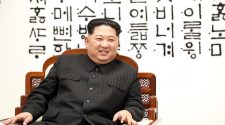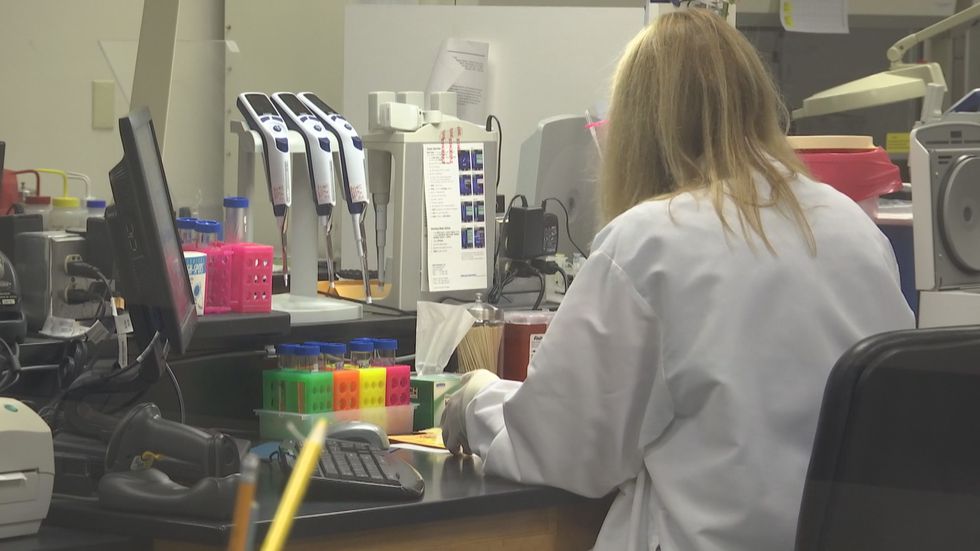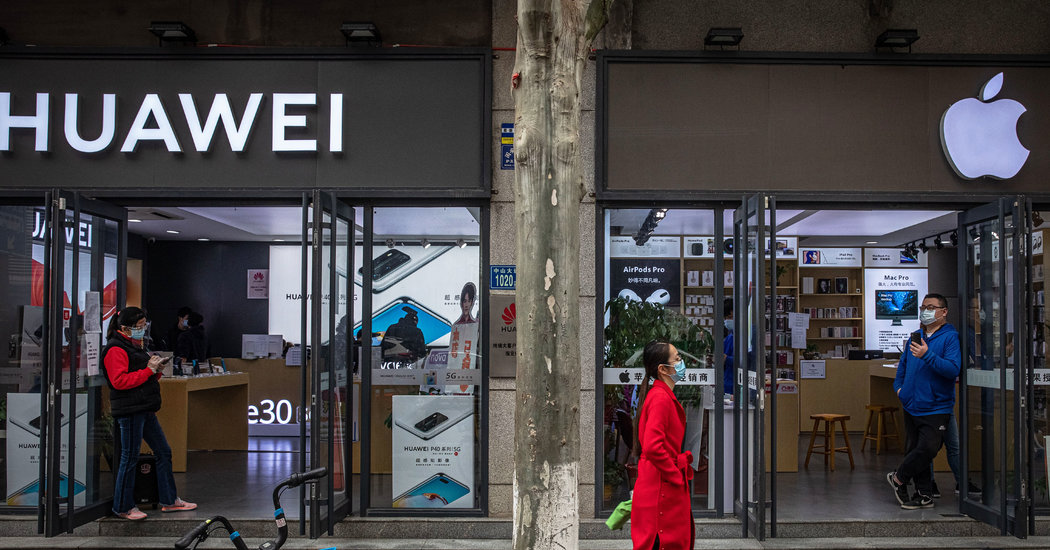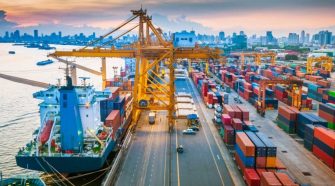WASHINGTON — The Trump administration issued a new rule Friday that will bar Huawei and its suppliers from using American technology and software, a significant escalation in the White House’s battle with the Chinese telecom giant and one that is likely to inflame tensions with Beijing.
The rule change, which is slated to go into effect in September, will block companies around the world from using American-made machinery and software to design or produce chips for Huawei or its entities. Companies can apply for a license to continue supplying those products, but the administration said the presumption would be to deny those requests.
John Neuffer, the president of the Semiconductor Industry Association, which represents chip makers, said his group was concerned that the rule would “create uncertainty and disruption for the global semiconductor supply chain.” He added, however, that it appeared less damaging than broader approaches the administration had previously considered.
The move appears aimed at inflicting further damage on Huawei, which continues to rely on American-made machinery and software designs to make the chips for its smartphones and tablets, as do the companies that supply it. The Trump administration has singled out Huawei as a threat to national security, saying its gear should not be trusted because it is beholden to the Chinese government, an accusation the company has denied.
The measure is the latest of several restrictions taken against Huawei in the last year. The administration added Huawei to an “entity list” last May, barring exports of American products to the company and 114 of its affiliates unless suppliers had first obtained a license.
After that rule was imposed, Huawei took steps to reduce its reliance on American chip manufacturers like Qualcomm and ramp up its in-house production through a chip unit, HiSilicon.
But HiSilicon still relies on outside manufacturers, including the Shanghai-based Semiconductor Manufacturing International Corporation, or S.M.I.C., and the Taiwan Semiconductor Manufacturing Company, or T.S.M.C., to mass-produce chips to its specifications. Many of those operations rely to some extent on technology that was developed and refined in the United States, where the semiconductor industry began.
In a statement on Friday, the Commerce Department said Huawei had tried to “undermine” its previous restrictions by using American software and technology to make its own semiconductors, and buying products from foreign foundries that used American equipment.
“There has been a very highly technical loophole through which Huawei has been able, in effect, to use U.S. technology with foreign fab producers,” Wilbur Ross, the commerce secretary, said in an interview Friday morning on Fox Business Network. He said the changes announced Friday were tailored moves “to try to correct that loophole and make sure that the American fab foundries are competing on an equal footing with the foreign ones.”
The measure could weigh on major chip contract manufacturers that sell to Huawei, particularly S.M.I.C. and T.S.M.C., which rely heavily on American manufacturing tools. It may also clamp down on sales by makers of semiconductor equipment, like Applied Materials, KLA and Lam Research, as well as chip design software companies.
The move comes at a moment of heightened tensions between the United States and China. President Trump has blamed China for not doing enough to stop the spread of the coronavirus and has suggested that the United States may punish the Chinese government. He has also begun threatening to scrap the trade deal the two countries signed in January.
“This came from China,” Mr. Trump said at a White House event to discuss a vaccine on Friday. “It should have been stopped in China before it got out to the world.”
The administration’s new measure against Huawei, one of China’s biggest technology companies and a crown jewel of Chinese innovation, could prompt a backlash against American technology companies that depend on sales to China, such as Qualcomm and Apple.
On Friday evening, the English edition of the Chinese state-controlled newspaper Global Times cited an unnamed source who said the Chinese government was ready to retaliate.
“Based on what I know, if the U.S. further blocks key technology supply to Huawei, China will activate the ‘unreliable entity list,’ restrict or investigate U.S. companies such as Qualcomm, Cisco and Apple, and suspend the purchase of Boeing airplanes,” Hu Xijin, the editor in chief of the Global Times, wrote on Twitter.
In a call with reporters on Friday, a State Department official enumerated the United States’ broad concerns about Huawei, including that it had violated American sanctions on Iran and helped the Chinese government construct a surveillance network within China and abroad. Huawei is key to the Chinese government’s broad strategy of “civil military fusion” that supports the Communist Party’s global ambitions, the official said.
Senator Ben Sasse, a Nebraska Republican, called the rule change “long overdue.”
“The United States needs to strangle Huawei,” he said in a statement. “Modern wars are fought with semiconductors, and we were letting Huawei use our American designs. This is pretty simple: Chip companies that depend on American technology can’t jump into bed with the Chinese Communist Party.”
Huawei had no immediate comment.
Keith Krach, the under secretary for economic growth, energy and the environment at the State Department, said Friday that T.S.M.C. had been given “no assurances” that it would be exempt from the measure. A Commerce Department official said the agency did not comment on individual license decisions.
A T.S.M.C. spokeswoman said the factory decision was based on its business needs, not part of any negotiation for eased trade sanctions.
In a statement early Friday, Secretary of State Michael R. Pompeo said the deal would increase American economic independence from China and strengthen the U.S. relationship with Taiwan, a self-governing island claimed by Beijing.
Also on Friday morning, the Commerce Department extended for another 90 days a license that has allowed American companies to continue doing business with Huawei temporarily. It warned that this would be the final extension.
Paul Mozur and Raymond Zhong contributed reporting.
















